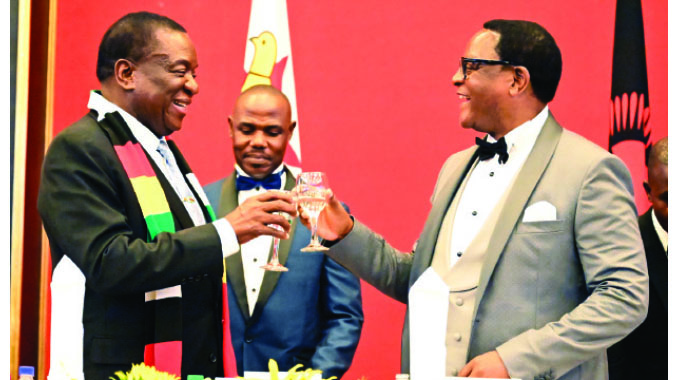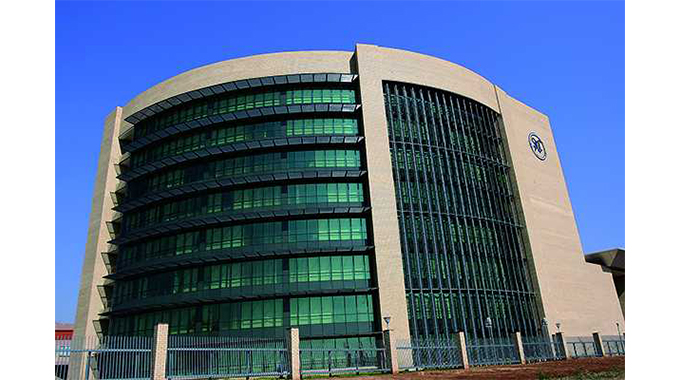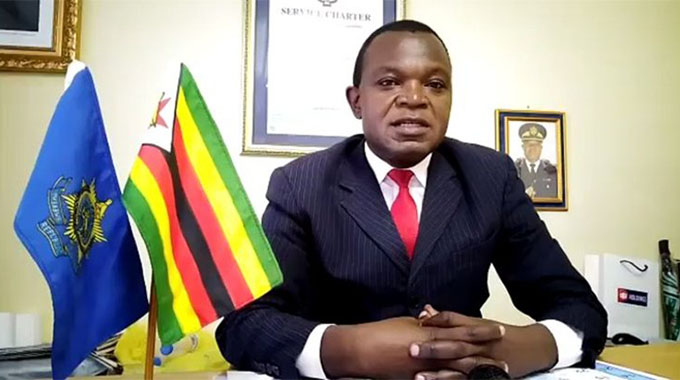COMMENT: Zimbabwe, Malawi longstanding relations boosted

PRESIDENT Mnangagwa concluded a successful three-day State visit to Malawi yesterday.
He landed in the capital, Lilongwe on Wednesday afternoon to be warmly welcomed by his host, President Lazarus Chakwera and attended a banquet hours later. On Thursday, the presidents witnessed the signing of nine memoranda of understanding (MoUs) on co-operation in the fields of local government, police matters, gender, forestry management, immigration, energy, information and broadcasting. They also toured a local tobacco auction floor.
Yesterday, the President was in the commercial capital, Blantyre, where he handed over a donation of 10 000 tonnes of grain and other supplies to President Chakwera for people who were affected by Cyclone Freddy south of that country in February to March this year.
It was a hectic tour during which serious business deals were struck, Zimbabwe’s humanitarianism was displayed and long-standing relations boosted.
The President, speaking on Thursday, reaffirmed Zimbabwe’s commitment to strengthening and deepening relations with Malawi which have been running at a relatively low level over the years despite immense opportunities for growth in sectors such as agriculture, mining, energy, manufacturing, tourism, forestry, infrastructure development, pharmaceuticals, higher education, science and technology and innovation space.

THE Southern African Development Community (Sadc)
“I want to commend the people and Government of Malawi for your country’s efforts, through Sadc, towards ‘silencing the guns’ in our region, specifically as part of the Force Intervention Brigade (FIB) Troop Contributing Countries in the conflict in the Democratic Republic of Congo,” said President Mnangagwa.
“Furthermore, Zimbabwe is grateful for the support that Malawi continues to provide at the bilateral, regional, continental levels, with regards the call for the removal of illegal sanctions imposed on us. We are also appreciative for Sadc’s unwavering stance on this issue and continued observance of October 25 as the Sadc Anti-Sanctions Day. Zimbabwe has indicated its readiness to rejoin the Commonwealth and we count on the support of Malawi in this regard.”
The political, social and cultural ties between the neighbours are strong and long-standing. The federation of the then Rhodesia and Nyasaland between 1953 and 1963 formalised those ties with thousands upon thousands of people from Malawi (then Nyasaland) and Zambia (then Northern Rhodesia) settling in the then more developed Zimbabwe (then Southern Rhodesia). Most of these people are well settled here, in their country.
But we are unhappy over the little economic relationship between Zimbabwe and Malawi. The former exported goods worth US$6 million last year with the latter exporting goods worth US$38,5 million.

Money – Image taken from Pixabay
The sums involved are too small thus must be grown for the mutual benefit of the two countries and their peoples. Apart from trade, we must have more Zimbabwean companies investing in Malawi and Malawian companies investing here.
Zimbabwe has a lot to learn from Malawi in, for example, food production. Malawians harvested 4 million tonnes of maize in 2022 while Zimbabwean farmers produced about 1,5 million tonnes in that year. The average yield per hectare in Malawi tends to be higher than ours — 2 tonnes per hectare versus 1,4 tonnes per hectare. Zimbabwe’s largest maize harvest in history was about 2,9 million tonnes in 1984, far less than Malawi’s 2022 record. Zimbabwe can, therefore, learn how Malawi produces so much food.
On the other hand, Malawi could wish to learn how Zimbabwe is Africa’s top tobacco producer and how Zimbabwe does so well in mining and indigenous entrepreneurship.










Comments